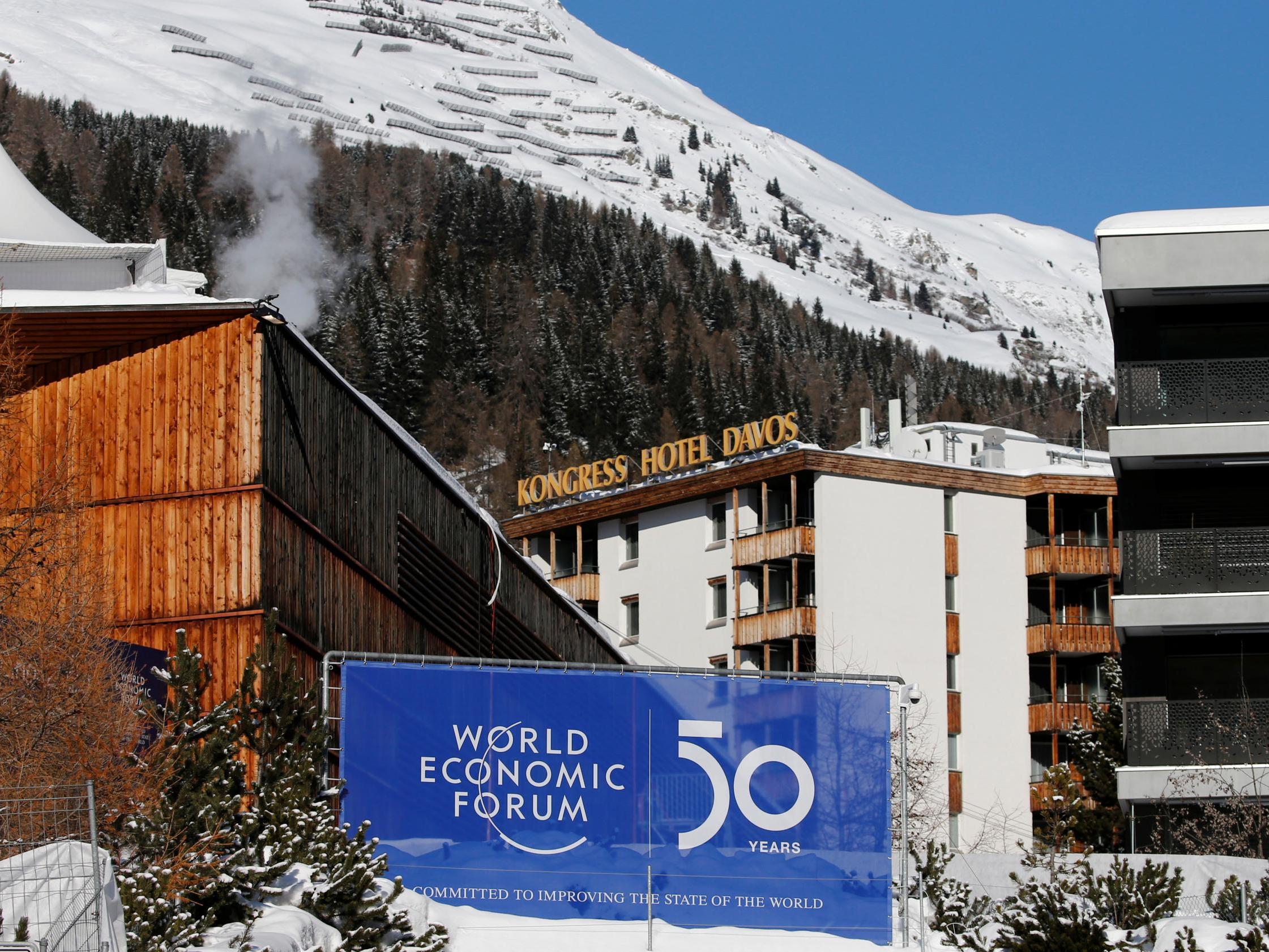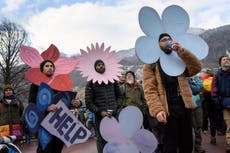Flying into Davos via private jet is never a good look – but popular action over the climate crisis is making the elite sit up and take notice
With Greta Thunberg and Donald Trump together in the Swiss resort, let us hope that a spirit of cooperation over the environment can be found amid the canapes and champagne


Davos, the global business conference that is a veritable mountain of its own contradictions, is back. For four days corporate leaders, bank bosses and politicians will share high debate and even higher quality food and drink as growth in Europe’s economies continues to flatline.
Hundreds of delegates will fly by private jet to the exclusive Swiss alpine ski resort to debate the calamities of, and solutions to the climate emergency.
But despite these examples of cognitive dissonance, there is a sign that it is the popular news that is setting the Davos agenda this year, rather than the other way around.
The event will kick off today with the latest global economic forecasts from the International Monetary Fund, which six months ago warned the economic recovery in 2020 would be weaker than expected. This will be followed by a debate on how to tackle global inequalities.
But the most positive sign of a shift, is on climate change. The World Economic Forum, the think tank that established Davos 50 years ago, set out its stall at an event in London last week.
Its own poll found that for the first time in 15 years of carrying out the research that climate change dominated the list of risks, underlining how the environment has shot up the agenda of the world’s elite in a year of record-breaking temperatures and unprecedented wildfires.
There is no shortage of business leaders queueing up to commit to a carbon neutral agenda and there will undoubtedly be a lot of grandstanding in Davos. Hot air is all very well but what any solution is going to have to be embedded in that “dismal science” of economics.
While that might sound less sexy than campaigns, protests and politics, the reasons for the environmental nightmare that is now upon us have their roots in the economic transformation of the last few hundred years.
Since the first Industrial Revolution the UK economy has grown 146-fold in real terms (excluding inflation), helping to deliver massively improved living standards, rising life expectancy and reduced child mortality. These gains were even higher in emerging markets where hundreds of millions of people have been lifted out of poverty.
But this has come at a cost to the environment: 21 of the planet’s hottest years on record have been seen over the last 23 years. Rapid growth has also brought us record volumes of debt and levels of inequality but, as Deutsche Bank’s head of thematic research Jim Reid points out, debt and inequality can be reduced over time.
“It is unlikely that the same can be said about the environment with many scientists believing that we’ve passed a tipping point in terms of permanent damage,” he says.
The added complication is that reducing humankind’s environmental impact will involve adjusting how much of the natural resources we all use and reducing the amount of pollution our activities produce.
While there is growing public acceptance of anthropogenic climate change, there is much less understanding of the economic and lifestyle trade-offs that are needed to meet specific targets. This was thrown into sharp relief last week when the government chose to put together a rescue package including potential aviation tax cuts to save Flybe, a domestic airline. Growth trumped climate.
A poll of Deutsche’s City investor clients found 81 per cent said they would accept the need to sacrifice economic growth if it was the only way to meet the 2015 Paris climate targets. A quarter of respondents suggested they would be prepared to see annual growth fall by 1 per cent or more to meet this.
On the flip side 12 per cent said they would not be prepared to sacrifice any economic growth and just 10 per cent of the 650 investors said they always considered environmental sustainability when putting their money into investments.
Given that cutting harmful emissions will involve restrictions on transport, industry and energy generation, then perhaps that survey offers little hope.
The challenge is to get people, whether business owners, wealth managers or households to understand that it is possible for the economy to grow at a slower pace to allow the environmental damage to be both stopped, while also seeing general economic welfare increase.
If the economy were to grow by just 1 per cent a year then the global economy would still expand by 170 per cent — or almost triple in other words — over the next 100 years. That is much less than the 624 per cent, or seven-fold increase, if the world economy grows by 2 per cent a year. But it’s still growth.
For economists, the issue is how people decide to use the results of that growth and what taxes, incentives and financial policy decisions are needed to guide those decisions.
Given the relative self-sacrifice that will be needed we cannot expect individual governments to achieve this. As with world peace and global trade governments support the end but not the means to achieve this.
Just as with peace and trade, ending he climate calamity will require a multilateral response to avoid some nations freeloading off others. With Greta Thunberg and Donald Trump together in Davos, let us hope that the spirit of cooperation can be found amid the canapes and champagne.


Join our commenting forum
Join thought-provoking conversations, follow other Independent readers and see their replies